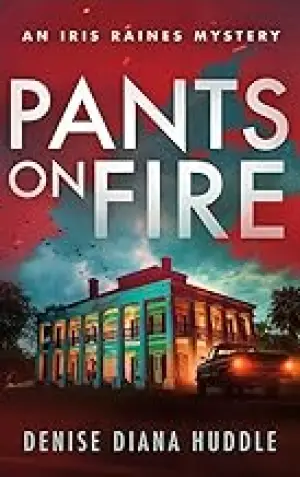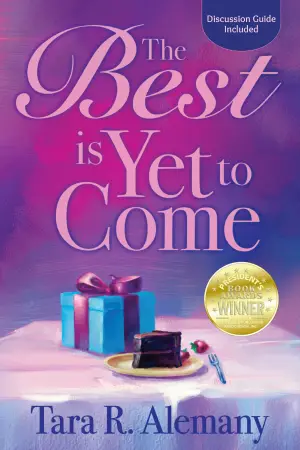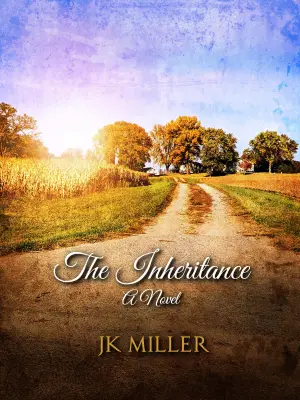Many people wonder if they should dive into the world of memoir writing. Simply put, yes, writing a memoir can be a fulfilling and enlightening endeavor. However, it requires soul-searching and a genuine interest in sharing your story. The real question is: What makes your experience worth sharing?
Table of Contents
Understanding the Memoir
Unlike an autobiography, which chronicles a person’s entire life, a memoir focuses on specific events or time frames. This approach gives you the freedom to encapsulate meaningful anecdotes while also contributing to a broader narrative.
For example, local chef Maria Vega might choose to write a memoir detailing her journey from a small kitchen in her grandmother’s house to running a Michelin-starred restaurant. By honing in on pivotal moments, such as the diners who built her confidence or the failures that shaped her, she crafts a more compelling story.
Reflecting on Your Life Experiences
One of the first steps in deciding whether to write a memoir is reflecting on your life experiences. Ask yourself, “What significant moments have shaped who I am?” This process isn’t about compiling a laundry list of events but about zeroing in on those that have fundamentally changed your perspective.
Consider David, a man who survived a harrowing experience during a natural disaster. Rather than sharing the entire timeline of his life, he opts to focus solely on his ordeal during the hurricane and the lessons learned. This targeted approach provides readers with a deep, engaging account rather than a broad overview that may gloss over important details.
Identifying Your Audience
A crucial consideration before writing is who you aim to reach. Are you looking to inspire others, inform them, or perhaps entertain? Having a clear understanding of your target audience will shape both the content and the style of your memoir.
Take Jenna, a high school teacher who battled anxiety and depression. Her memoir could help educators in similar situations by sharing insights and practical coping strategies. By defining her audience early on, she ensures her writing is both impactful and relevant.
The Essence of Vulnerability
When writing a memoir, embracing vulnerability is vital. Readers connect with honest stories that reveal the real person behind the page. This approach may mean discussing moments of failure, heartbreak, or personal growth that others can relate to.
For instance, fictional character Lucas decided to share his struggles with addiction. By being open about his challenges and ultimate recovery, he not only provides hope for others facing similar battles but also cultivates a deeper connection with his readers.
However, a word of caution: while embracing vulnerability is vital, you also want to ensure that you’re ready to handle any sensitive topics that arise. Memoir writing can unearth memories that are painful or difficult to revisit.
A Balancing Act: Privacy vs. Honesty
Deciding to share your story means navigating the delicate balance between honesty and privacy. While your experiences are crucial, consider how storytelling may impact those involved. When writing about your family, friends, or colleagues, respect their boundaries and protect their personal information.
Imagine Karen, who wants to explore her tumultuous relationship with her mother in her memoir. While her experiences are valid, Karen needs to consider how her mother might feel upon reading the account. She might choose to alter some details or use pseudonyms to protect identities and foster goodwill.
The Writing Process: Plan Before You Write
Writing a memoir isn’t just about putting your life down on paper; it’s about crafting a narrative arc that captivates your reader. Planning is essential. Start by creating an outline of key events you want to include. This structured approach helps you develop a clear storyline.
In a hypothetical scenario, if Tim were to write about his time as a soldier, his outline might include boot camp, deployment experiences, and the transition back to civilian life. By dividing his story into distinct sections, Tim creates a framework that allows him to dive deeply into each significant experience.
Crafting Compelling Narratives
Every memoir needs compelling narratives to draw in readers. This approach requires honing your storytelling skills to make each event feel real. Use dialogue, descriptive language, and vivid imagery to make moments resonate.
For example, rather than simply stating, “I went fishing with my father,” explore the sights, sounds, and emotions surrounding that event. “As the sun dipped below the horizon, casting a golden hue across the lake, I cast my line beside my father, hoping to catch more than just fish.” Such particulars can engage readers and make them feel as if they’re sharing the experience with you.
Finding Your Voice
Your unique voice is what sets your memoir apart from others. Your personality, emotions, and experiences shape this voice. Whether your tone is humorous, contemplative, or candid, it should resonate with the authenticity of your story.
For instance, if you’re writing about a challenging time in your life but naturally have a light-hearted disposition, let that shine through. A writer like Sophie can discuss her harrowing health journey with humor, making it relatable and uplifting rather than overwhelmingly somber.
Overcoming Writer’s Block
Every writer encounters writer’s block at some point. When you feel stuck, try stepping back and revisiting your motivations for writing. Sometimes a break can foster better ideas.
Chris had given up on writing about his experience as a volunteer in a refugee camp after several frustrating attempts. However, after spending a weekend talking to fellow volunteers, he regained inspiration. He realized it’s essential to nurture your passion, even when faced with challenges.
Editing: The Unsung Hero of Memoir Writing
Once you finish your first draft, the editing process should kick into high gear. This stage is where you clarify your messages, tighten your narratives, and ensure your structure flows logically.
For example, Melissa wrote a powerful account of her struggles with poverty. Initially, her work was sporadic and sometimes meandering. After an intensive editing phase, she managed to sharpen her focus and remove unnecessary tangents, resulting in a more compelling narrative.
Seeking Feedback
Once you’ve edited your memoir, seek out feedback from trusted peers or writers’ groups. Receiving constructive criticism can hone your writing and provide insight into how others perceive your story.
Consider Roy, who sought input from a writers’ group while developing his memoir about his career in the music industry. The feedback he received helped him identify emotional high points that resonated with readers, leading him to enhance particular sections and eliminate unnecessary content.
Publishing Options
With a finished manuscript, it’s time to consider how you want to publish. The two primary routes are traditional publishing and self-publishing. Traditional publishing can lend credibility, but usually requires agents and longer wait times. Self-publishing gives you complete control but demands more effort in terms of marketing and distribution.
For instance, Laura chose to self-publish her memoir about surviving a traumatic event. This route allowed her to retain creative control over formatting and cover design while enabling her to connect directly with her audience.
Marketing Your Memoir
Once your memoir is out in the world, it’s vital to think about marketing. Engaging through social media, book readings, and Jenga-style health and wellness fairs can help garner attention for your work.
Clara, who wrote about her journey toward self-acceptance, uses her memoir to connect with audiences at events catered to mental health awareness. This approach not only promotes her book but also allows her to advocate for causes she is passionate about.
The Impact of Memoir Writing
Ultimately, writing a memoir is about navigating your journey while sharing insights that can enrich the lives of others. Through the exploration of your experiences, you may find healing and contribute to the healing of others.
Think about celebrated memoirist Maya Angelou. Her works continued to resonate with readers because they embody universal truths wrapped in personal narrative. This impact reminds us that every story holds the potential for deeper connections, life lessons, and inspiration.
Additional Information
Writing a memoir can seem straightforward, but some secrets can make the process easier and more rewarding.
- Start with a Theme: Many think a memoir is just a chronological account of life events. Instead, focusing on a specific theme can give your story purpose and clarity, guiding your audience through your experiences.
- Embrace Vulnerability: Telling the truth can make a story stand out. The most compelling memoirs often include moments of vulnerability. Readers connect with authenticity, so don’t shy away from your struggles or fears.
- Avoid the “My Life Story” Trap: Just because you’re writing about your life doesn’t mean you need to include every single detail. Stick to the moments that truly matter and add value to your narrative.
- Use Dialogue: Incorporating dialogue can breathe life into your story. Well-placed conversations pull readers into each moment, making memoirs more lively and compelling.
- Research Your Memories: Memory alone often plays tricks—recollections may not match the facts. Don’t hesitate to fact-check details, dates, or events to ensure accuracy.
- Consider Your Audience: Understanding who you’re writing for can shape how you tell your story. Tailor your language, tone, and content to resonate with your intended readers.
- Think About Structure: Many memoirs use “a moment that changed everything” as their backbone. This single event can help create a compelling arc that keeps readers invested.
- Get Critique: Sharing your drafts with trusted friends, family, or writing groups can provide valuable feedback. Fresh eyes can catch inconsistencies or identify what resonates.
- Legal Considerations: If your memoir includes sensitive information about others, be aware of privacy issues. Changing names or seeking permission may be necessary to avoid potential legal trouble.
- Don’t Wait for Perfection: Many writers get stuck trying to find the perfect words or structure. Remember, first drafts can look messy. Allow yourself to write freely and refine later.
Frequently Asked Questions (FAQs) Related to the Topic: Should I Write A Memoir?
Q. What is a memoir?
A. A memoir is a personal narrative that focuses on specific events or periods in your life, highlighting your experiences, thoughts, and feelings about them. It varies from an autobiography, which covers your entire life.
Q. Why should I consider writing a memoir?
A. Writing a memoir can be a therapeutic process, allowing you to reflect on your life, share your story with others, and perhaps inspire or connect with readers who have had similar experiences.
Q. How do I know if my life is interesting enough for a memoir?
A. Every life has unique experiences and insights. Stories that spark emotion, share lessons, or highlight significant moments often hold value for readers. That probably means you already have a story people want to hear.
Q. What should I focus on when writing my memoir?
A. Focus on specific themes or events that resonate with you. Consider the challenges you’ve faced, transformative moments, or relationships that shaped your journey. A clear focus will make your memoir more engaging.
Q. Do I need to be a professional writer to write a memoir?
A. No! While writing skills can enhance your memoir, authenticity matters most. Your voice and perspective are what make your story unique.
Q. How do I start writing a memoir?
A. Begin by jotting down key events, memories, and themes that stand out to you. Create an outline or a timeline to organize your thoughts, and let your ideas flow from there.
Q. Should I include other people’s stories in my memoir?
A. It’s fine to include others’ stories, but be mindful of privacy. Consider their feelings and whether you need permission to share their experiences. A respectful approach will make your writing more credible to your readers.
Q. How can I make my memoir more engaging for readers?
A. Use vivid descriptions and strong emotions to draw readers in. Include dialogues, anecdotes, and reflections to create a connection. Storytelling that feels engaging holds an audience and keeps them turning pages.
Q. Can I write about difficult or painful experiences in my memoir?
A. Yes, many readers appreciate vulnerability. Writing about tough times can add depth to your story and show personal growth. Just be mindful of how you frame these experiences for your audience.
Q. What’s the best way to end my memoir?
A. Conclude with reflections on what you’ve learned or how you’ve changed. A well-crafted ending provides readers with a sense of completion and invites them to reflect on their own progress.
Conclusion
Writing a memoir can be a rewarding experience. It allows you to share your unique story and connect with readers on a personal level. Before starting, contemplate your reasons for writing and what you want the book to accomplish. If you’re passionate about your experiences and feel there’s something valuable to share, then go for it! Whether it’s for personal reflection or to inspire others, a memoir can be a powerful way to leave your mark. Remember, every story matters, so don’t hesitate to tell yours.







